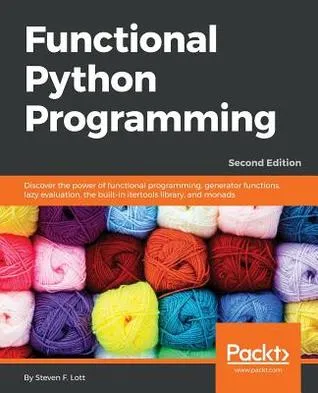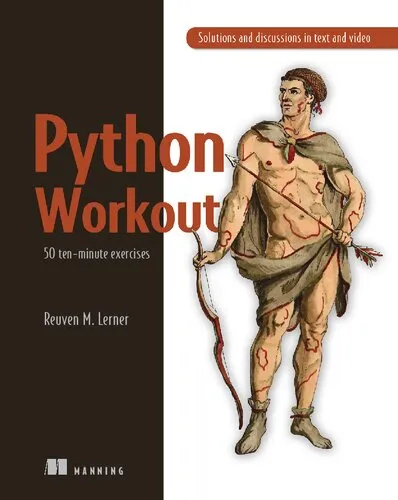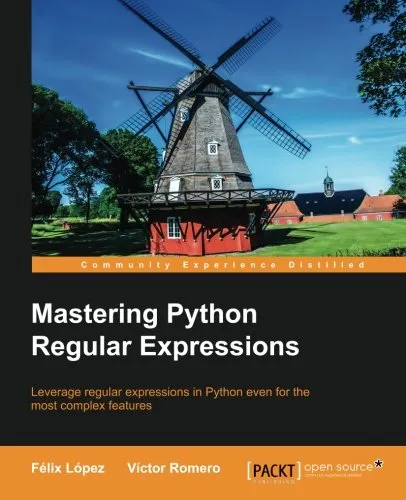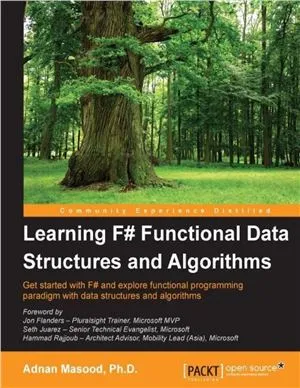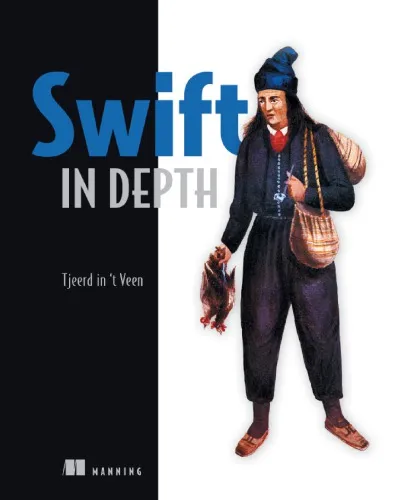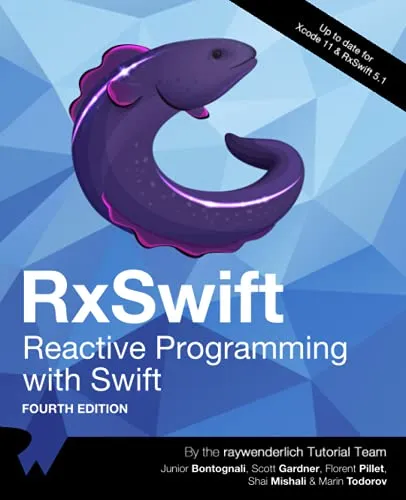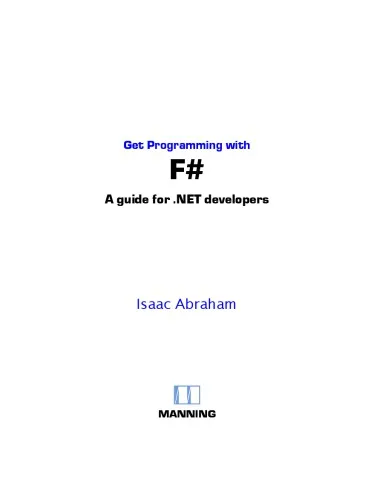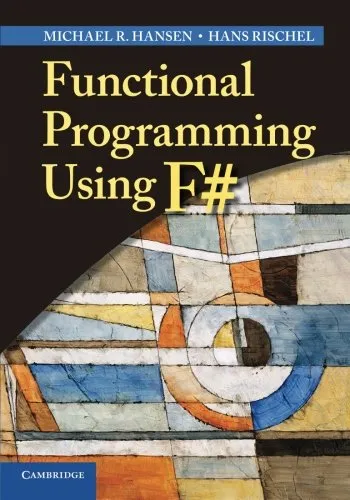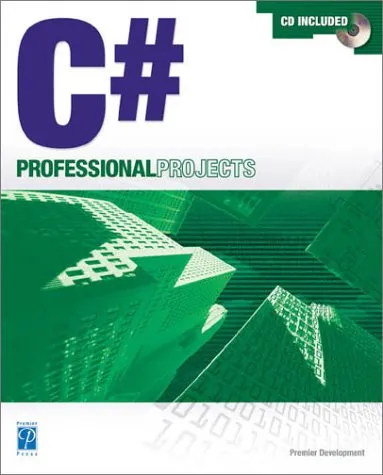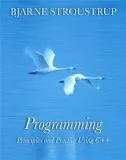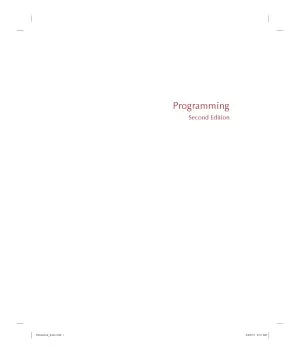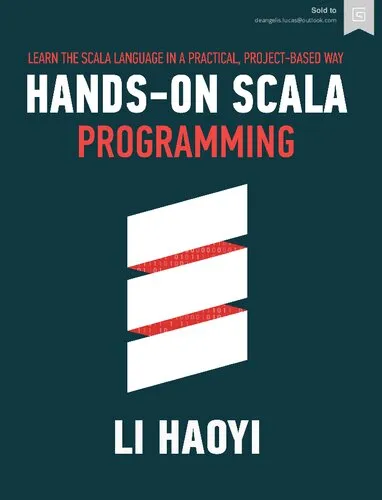Functional Python Programming: Discover the power of functional programming, generator functions, lazy evaluation, the built-in itertools library, and monads
4.4
Reviews from our users

You Can Ask your questions from this book's AI after Login
Each download or ask from book AI costs 2 points. To earn more free points, please visit the Points Guide Page and complete some valuable actions.Related Refrences:
Introduction to Functional Python Programming
Welcome to Functional Python Programming, a comprehensive guide designed to help Python enthusiasts unlock the full potential of functional paradigms in one of the most versatile programming languages today. This book explores the modern techniques, principles, and practices that emphasize declarative programming over procedural or imperative styles. By diving deep into concepts like generator functions, lazy evaluation, the itertools library, and even monads, this book becomes an essential resource for programmers who want to embrace the functional approach in Python.
Functional programming in Python isn't just about following trends—it's about building robust, maintainable, and scalable software. Python, as a language, offers incredible versatility, blending object-oriented and procedural styles effortlessly. However, Python also integrates functional programming elements, providing tools that can simplify complex problems and reduce side effects in your software. This book takes you step-by-step through integrating functional paradigms into your Python toolkit while providing practical examples and actionable insights to bridge the gap between theory and application.
Detailed Summary of the Book
At its core, Functional Python Programming is about transforming how you approach problem-solving through Python's functional capabilities. The book begins with a concise explanation of functional programming principles, laying the groundwork for readers unfamiliar with this paradigm. It explores vital concepts like higher-order functions, pure functions, immutability, and referential transparency, ensuring clarity even for those new to these ideas.
Throughout the chapters, you'll find clear guidance on utilizing Python's tools for functional programming. The book delves into essential topics, including:
- Using built-in higher-order functions like
map(),filter(), andreduce(). - Mastering the itertools library for efficient iteration and data transformation.
- Leveraging lazy evaluation and generator functions to save memory and improve performance.
- Understanding monads and their role in managing side effects in functional code.
- Applying functional programming techniques to real-world problems.
Additionally, the book emphasizes the tradeoffs of using functional paradigms in Python, offering practical advice on when and where to employ these techniques in your projects.
Key Takeaways
By the time you finish reading Functional Python Programming, you will have gained a deep understanding of:
- How functional programming differs from other paradigms and when to use it.
- The benefits of immutability and how to write cleaner, bug-free code.
- Harnessing Python's built-in tools like
itertoolsand generator expressions for elegant solutions. - How to optimize applications for performance using laziness and generators.
- Practical examples of real-world implementation using these techniques.
- Bridging the gap between functional concepts and Python’s multi-paradigm language features.
Famous Quotes from the Book
"In functional programming, we write solutions that focus less on 'how' and more on 'what'—letting abstraction take center stage to reduce complexity."
"Generator functions in Python are a perfect marriage of laziness and practicality, giving us unlimited data with limited memory."
"While Python is not inherently a functional programming language, its richness allows us to embrace and blend functional programming paradigms into our code seamlessly."
Why This Book Matters
In a tech landscape that is increasingly leaning towards declarative programming and functional paradigms, understanding the functional programming concepts and techniques has never been more critical. Python developers, in particular, are often caught in a dilemma, juggling object-oriented principles with functional opportunities. This book shines as a beacon to bridge these paradigms.
Functional Python Programming not only equips programmers with the tools needed to master functional programming in Python but also allows them to write more concise, readable, and efficient code. By focusing on practical implementation, this book encourages readers to adopt functional techniques in their everyday programming tasks, revolutionizing how they write and think about Python code.
Regardless of whether you're an experienced developer looking to expand your skill set or a beginner eager to absorb future-proof programming techniques, this book delivers invaluable insight into the functional capabilities of Python. By the end, you will be confident in applying functional programming tools and creating Python applications that are not only elegant but scalable and reliable.
Free Direct Download
You Can Download this book after Login
Accessing books through legal platforms and public libraries not only supports the rights of authors and publishers but also contributes to the sustainability of reading culture. Before downloading, please take a moment to consider these options.
Find this book on other platforms:
WorldCat helps you find books in libraries worldwide.
See ratings, reviews, and discussions on Goodreads.
Find and buy rare or used books on AbeBooks.
1400
بازدید4.4
امتیاز0
نظر98%
رضایتReviews:
4.4
Based on 0 users review
Questions & Answers
Ask questions about this book or help others by answering
No questions yet. Be the first to ask!
